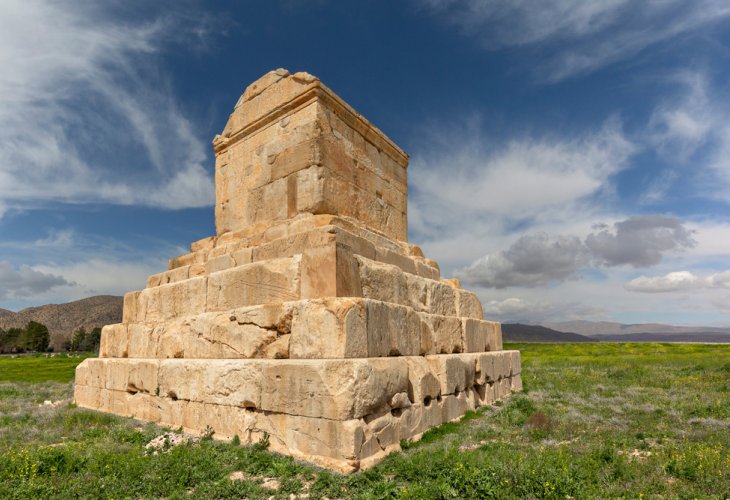Torah Personalities
Cyrus the Great: The Persian King Who Changed Jewish History
A powerful emperor and a man of tolerance, Cyrus of Persia paved the way for the Second Temple but missed his moment in Jewish destiny
 Tomb of Cyrus the Great, Persian King (Photo: shutterstock)
Tomb of Cyrus the Great, Persian King (Photo: shutterstock)The Rise of an Empire
Cyrus the Great, king of Persia, was a formidable conqueror who built one of the most expansive empires in the ancient world. He successfully subdued the kingdoms of Media, Assyria, Lydia, and Babylonia and transformed Persia into the vast, wealthy, and influential Achaemenid Empire.
But Cyrus was not only a conqueror. Unlike the harsh rulers of Babylon, who exiled and oppressed their subjects, Cyrus was known for his kindness and progressive governance. He granted rights to the diverse people under his rule and promoted peace and stability across his empire.
The Declaration That Changed Jewish History
Cyrus is best known in Jewish tradition for his historic edict, the Declaration of Cyrus, that allowed the exiled Jews of Babylon to return to their homeland and rebuild the Temple in Jerusalem. As recorded in the Book of Ezra:
“Thus said Cyrus king of Persia: All the kingdoms of the earth has Hashem, the God of Heaven, given me; and He has charged me to build Him a house in Jerusalem, which is in Yehudah. Whoever among you of His people, may his God be with him, and let him go up to Jerusalem... and rebuild the House of Hashem, the God of Israel” (Ezra 1:2–3).
Cyrus even returned the sacred vessels that Nebuchadnezzar had taken from the original Temple, an extraordinary gesture of goodwill and reverence.
A Royal Lineage?
Some sources suggest that Cyrus may have had Jewish roots, proposing he was the son of Esther and Ahasuerus. According to this view, his declaration was intentionally worded to allow all nations to return to their lands, so as not to appear biased toward the Jewish people.
A Righteous King Who Fell Short
The Sages praise Cyrus as a king worthy enough to be counted among the kings of Israel (Rosh Hashanah 3b). As Rashi explains, even his Hebrew name, Coresh, reflected his righteousness.
Still, rabbinic literature is not without criticism. Despite issuing his famous declaration, Cyrus failed to take a more active role in rebuilding Jerusalem. The Gemara records Divine disappointment:
“I said he would build My house and gather My exiles, but he said, ‘Whoever among you... may go up’” (Megillah 12a).
Furthermore, his architectural instructions for the Temple intentionally made it vulnerable to fire, as he feared a possible Jewish revolt. The Talmud (Rosh Hashanah 4a) notes that this weakened the Temple’s structural integrity.
Cyrus also later halted the return of Jews to the Land of Israel. According to Shir HaShirim Rabbah (5:5), he observed an economic downturn in his empire, and upon learning that many of his artisans and craftsmen had gone to Jerusalem, he ordered a freeze on further immigration.
Legacy and Final Resting Place
Despite his shortcomings, Cyrus remains a towering figure in Jewish history, a foreign king who embraced Jewish destiny and helped set it back in motion. His tomb still stands today in the ancient city of Pasargadae in modern-day Iran.

